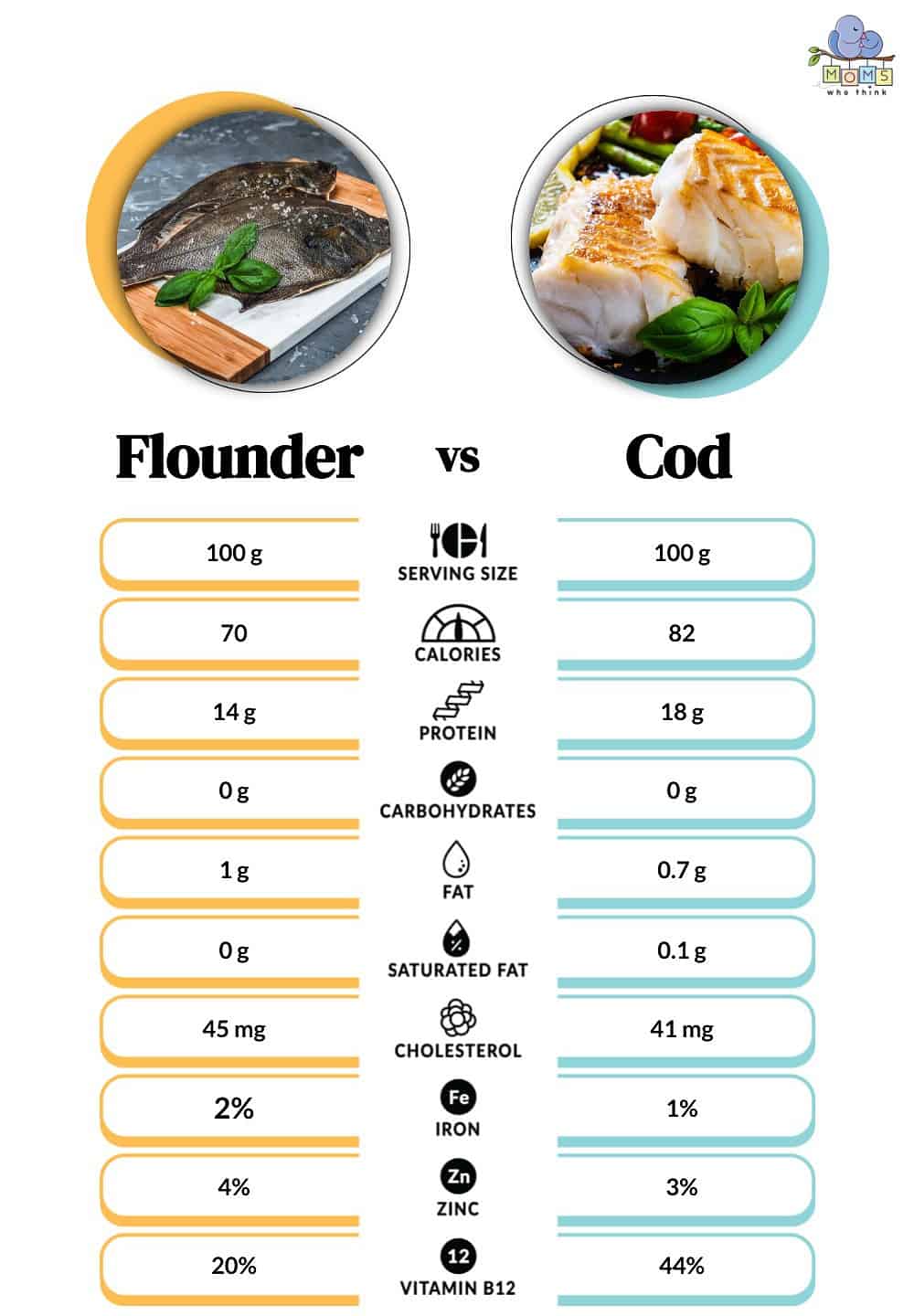Flounder Vs Cod Taste: A Culinary Showdown
When it comes to seafood, two of the most popular choices are flounder and cod. Each offers a unique taste and texture that can elevate any dish. Understanding these differences not only enhances your culinary experience but also aids in making informed choices when shopping for fish. The taste of seafood can vary widely based on factors such as the type of fish, its habitat, and how it is prepared. Flounder and cod, for instance, are both white fish but come with distinct characteristics that set them apart in flavor and culinary applications.
In this article, we will explore the differences between flounder and cod, examining their taste profiles, textures, and best cooking methods. Whether you're a seafood aficionado or a casual diner, knowing how the flavors of flounder vs cod taste can help you decide which fish to include in your next meal.
From delicate and buttery to mild and flaky, the taste of these fish can dramatically influence the outcome of your dish. As we delve deeper into the world of flounder and cod, we will also consider popular recipes, nutritional benefits, and more to help you make the best choice for your palate.
Read also:Discover Adventure Legoland Discovery Center Arizona
What is Flounder?
Flounder is a flatfish known for its wide, oval shape and is typically found in shallow coastal waters. It has a delicate flavor and a soft, flaky texture. Often enjoyed for its mild taste, flounder can easily absorb seasoning and sauces, making it a versatile ingredient in various recipes.
What is Cod?
Cod is a popular fish with a slightly firmer texture compared to flounder. Known for its mild yet distinctive flavor, cod is often used in fish and chips and is favored for its ability to hold up well in cooking. It has a flaky texture and a subtle sweetness that makes it a favorite among seafood lovers.
How Do Flounder and Cod Taste Differently?
The taste of flounder vs cod taste can be distinct. Flounder offers a more delicate and buttery flavor, while cod has a slightly stronger, more robust taste. Here are some key differences:
- Flounder: Mild, buttery flavor with a soft texture.
- Cod: Mild yet slightly sweet flavor with a firmer, flaky texture.
Which Fish is More Versatile in Cooking?
When considering versatility in cooking, both flounder and cod have their unique strengths. Flounder is often used in lighter dishes, easily pairing with various sauces and seasonings. In contrast, cod's firmer texture makes it ideal for grilling, frying, and baking, allowing it to maintain its shape during cooking.
How Do Flounder and Cod Pair with Other Ingredients?
Flounder vs cod taste extends beyond just the fish itself; it's also about how they pair with other ingredients. Flounder complements light flavors, such as lemon, herbs, and delicate sauces. Cod, on the other hand, can hold its own against bolder flavors, such as spicy seasonings or hearty ingredients like potatoes and vegetables.
What are the Nutritional Benefits of Flounder and Cod?
Both flounder and cod are nutritious choices when it comes to seafood. They are low in fat and high in protein, making them excellent options for a healthy diet. Here's a brief comparison of their nutritional benefits:
Read also:Unveiling The Mysteries Of Cnc A Comprehensive Guide To Understanding Computer Numerical Control
- Flounder: Low in calories, a good source of protein, and contains omega-3 fatty acids.
- Cod: Rich in protein, low in calories, and also a good source of omega-3 fatty acids and vitamins B12 and D.
What are the Best Cooking Methods for Flounder and Cod?
When it comes to cooking flounder and cod, different methods can highlight their unique flavors:
- Flounder: Best cooked using gentle methods like sautéing, baking, or poaching.
- Cod: Versatile enough for grilling, frying, baking, or braising.
Which Fish Should You Choose for Your Next Meal?
The choice between flounder and cod ultimately depends on your taste preferences and the dish you plan to create. If you prefer a delicate, buttery flavor, flounder is an excellent choice. However, if you enjoy a firmer texture and slightly stronger flavor, cod may be the better option.
Conclusion: Flounder vs Cod Taste – Which One Wins?
In the battle of flounder vs cod taste, both fish have their merits. Flounder offers a subtle and delicate flavor, while cod provides a firmer texture and a slightly sweeter taste. Your choice boils down to personal preference and the specific culinary application. Regardless of which fish you choose, both flounder and cod can be deliciously prepared and enjoyed in various dishes.
Article Recommendations


